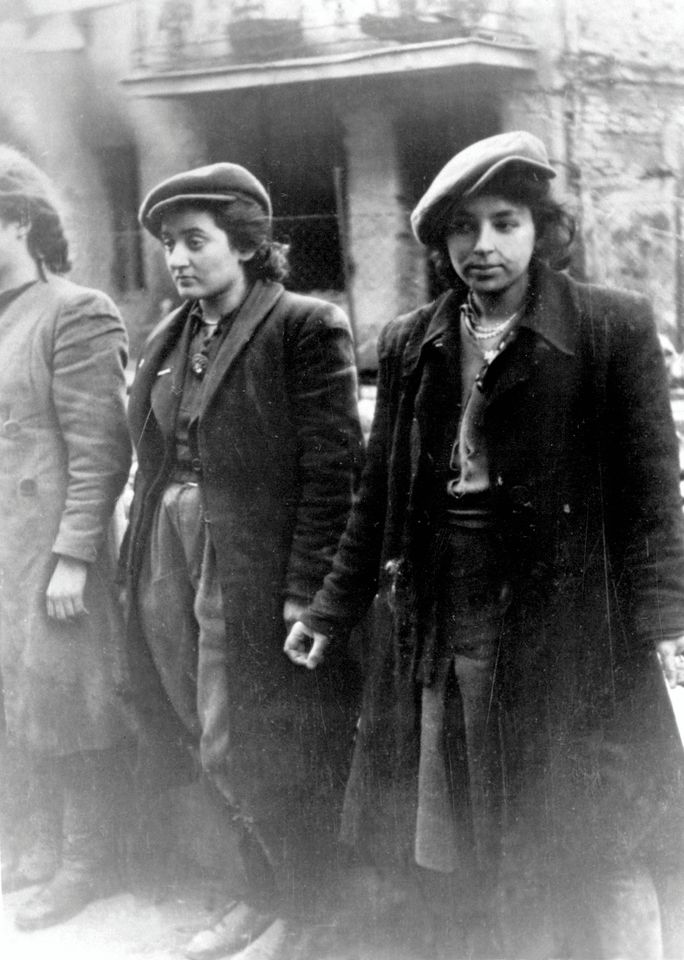WORLD SOCIALIST WEB SITE
 Women of the Jewish resistance, including Malka Zdrojewicz (right), who survived the Majdanek extermination camp.
Women of the Jewish resistance, including Malka Zdrojewicz (right), who survived the Majdanek extermination camp.
On April 19, 1943, Jewish inhabitants of the Warsaw Ghetto, in the capital of German-occupied Poland, launched a heroic rebellion against the genocidal Nazi regime. The uprising inspired workers and young people throughout Europe who were engaged in the resistance to the fascist powers and their crimes.
The Warsaw Ghetto had been established by the Nazis in late 1940. Some 450,000 Jews in the Polish capital were rounded up and forced into what was effectively an open-air prison about 2.5 miles long and one mile wide. By early 1942, an estimated 5,000 people were dying every month of disease and starvation. At the same time, the Nazis began sending tens of thousands from the ghetto to their death in the gas chambers at the Treblinka concentration camp.
In early 1943, just 60,000 Jews remained in the Warsaw Ghetto. In February, senior Nazi minister Heinrich Himmler planned an onslaught against the remaining population. This began on April 19, when 5,000 German troops, predominantly from the notorious SS, entered the ghetto, with the intention of exterminating its residents.
The Jewish population resisted the onslaught. Political organizations in the ghetto, including the left-wing ?ydowska Organizacja Bojowa (ZOB), had conducted widespread political agitation, and logistical preparations to oppose the Nazi incursion. They conducted a guerrilla campaign against the fascist troops, using small arms, a handful of rifles and machine guns, and improvised weapons, including hand grenades.
Over the following days, the barbarism of the German troops intensified. They killed women and children, and set much of the ghetto on fire. On May 9, Nazi troops surrounded the secret ZOB headquarters. The fighters inside committed suicide rather than fall into the grip of the fascists.
On May 16, the ghetto was liquidated. Some 20,000 Jewish residents had been killed. Almost all of the rest were transported to Treblinka. The uprising, and the tragic fate of those who led it, also highlighted the complicity of the Allied powers in the genocide against the Jewish population. All of them, including the Roosevelt administration in the United States, had rejected calls for mass intakes of Jewish refugees and had made no military effort to block the Nazi transfer of Jews to the concentration camps.
World Socialist Web Site for more
